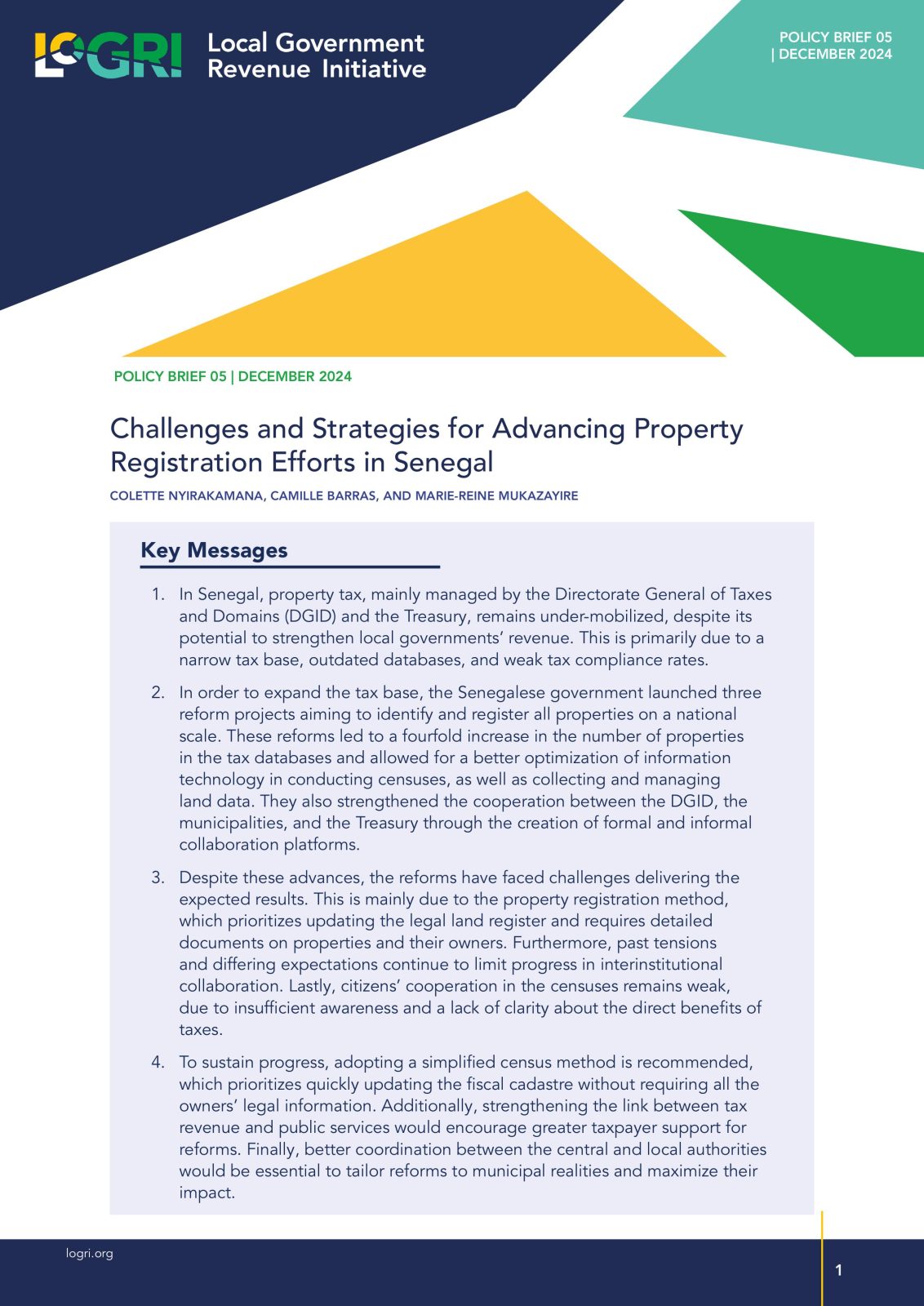Revenue generated from property taxes has the potential to strengthen local governments’ financial capacity. However, local government often struggle to fully realize this potential. This poor performance is largely due to the inability to regularly identify and register all properties, as is the case in Senegal. To address this challenge, the Senegalese government has supported three nationwide property identification and registration programs. This policy brief describes these programs and outlines their current achievements and challenges. It provides recommendations to inform Senegal’s tax administration strategies to improve the ongoing efforts and promote their sustainability.




